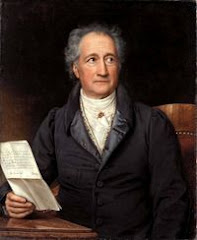For the entire year we have discussed how Rome was the "light" and the greatness it possessed. It was a place where technology and the arts flourished. It was also a place where the Pope resided. However, the beginning of the 18th century has showed up that France has become to new Rome. Perhaps it is because people began worrying less on religion and more on bettering themselves, it mattered less that Rome was such a religious part of Europe. France began to prosper over the years and became to place where the people, located in what is today Germany, related to. French was, for the most part, the language of choice. France was now the "light" and people throughout Europe found themselves drawn to it. Perhaps as we saw in Gladiator with Maxiumus fighting for Rome, a place he had never been to, we would find people living outside of France fighting for a country they did not even live in!
- Kevin Gardner
Friday, February 29, 2008
Subscribe to:
Post Comments (Atom)







.jpeg)


3 comments:
I would not agree with the idea that everyone looked towards France as the shining light. For the peasants and burghers life was mostly the same across the board. It was the Nobility who looked towards France's Nobility for inspiration not the normal people of society. The vast building projects that the nobility and especially the King of France such as Versaille would be the new showing of power for the nobility throughout Europe. Palaces such as Schönbrunn in Vienna, Sanssouci in Potsdam, etc.
The Peasants were more concerned with putting food on the table, not speaking or acting French. The Burghers for the most part were concerned with saving money, and living a good comfortable life. They might of even had some disdain for the Nobility prancing around using their hard earned money to build vast palaces.
Greg T.
I would like to say that while Gregs argument makes a valid point, i feel that with the study of history, one typically studies the upper class when one studies the history of a people. Those are the people who decide what the culture of the society is. On top of that i would say that not only the nobility that looked towards the french, but also i would say that the growing "Burgertum" also assumed the French culture.
A couple of years ago, as i was walking around Potsdam, a lot of the buildings had french writing above the doors describing the trade of what was within. I had never seen anything like that before. I found it very interesting after I saw it and I haven't thought of it until we discussed it in class.
Lastly i wanted to add that as we were talking about the development of the "Das Burgertum" and how they were effected by Nobility, and then in turn "Das Burgertum" would affect those lower than them.
Seth M Graves
Ich muss in vielen Punkten mit Seth übereinstimmen. Die Kultur des Adel und der Bürgertum waren wichtiger als die Kultur der kleiner Menschen, und für dem, die französische Sprache und Kultur waren benutzt als die “lingua franca” der Zeit. Da die französische Länder hatten einige kulturelle Identität mit bedeutend Philosophie, Wissenschaft, und Kunst, die mächtig, schöpherischen und politischen Leuten der Zeit, mussten die französische Ideen als einen gute Beispiel sehen, um politische und kulturelle Vereinigung zu erreichen. Ferner, eine Mitglieder der Adel, die reich im Kunst war, war reich im Macht auch, weil je der reicher der Kunst, desto mächtiger der Mensch.
- Garth Fox
Post a Comment